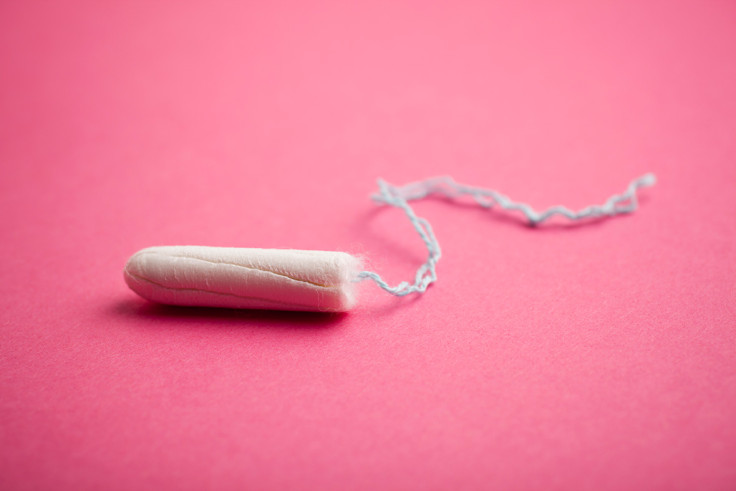What is period poverty? This is why people are protesting for #FreePeriods
Adwoa Aboah, Daisy Lowe, Jess Phillips MP and Aisling Bea are due to speak at the London protest.

A huge protest against period poverty, under the slogan #FreePeriods, is taking place near Downing Street on Wednesday evening (20 December). But what actually is period poverty, and why are women coming together against it now?
Period poverty is, quite simply, women and girls going without sanitary pads, tampons or any other sanitary products because they cannot afford them. This can mean girls aged as young as 10 routinely missing school during their period to deal with it in the privacy of their own home, or instead using newspaper or socks as improvised, rudimentary tampons.
According to research released by Plan International UK in October, one in 10 girls have been unable to afford sanitary products. One in seven have had to borrow sanitary pads from a friend, and more than one in 10 had to use improvised products, both due to affordability issues.
Lucy Russell, the charity's campaign manager, said: "We welcome proposals and new ideas to help tackle the fact that for too many girls, dealing with their period each month is proving a tough challenge. Distributing products at school, including reusables, could play a role in ensuring that no girl struggles to afford sanitary wear."
Protesters, who will gather on Wednesday at 5pm, want to end period poverty by providing free menstrual products to every girl who receives free school meals. They say tampons or sanitary pads should be a right, not a privilege, and are calling on Theresa May to make the products accessible, while raising awareness of period poverty.
A petition with more than 85,000 signatures, was launched earlier this year by 18-year-old Amika George. She explained: "In the UK, every child has the right to go to school but a growing number of them face missing school every month for the simple reason that they can't afford menstrual products.
"As a schoolgirl myself, I know we must change this. Period Poverty must go. That's why we are calling on the government to provide free menstrual products to all children on free school meals."
Speaking at a recent TEDx Talk in Covent Garden, George described period poverty as a "hidden problem, an unknown crisis". "Girls in the UK have to choose between an education they need and deserve or going to school using horrific and almost primitive alternatives like toilet paper, old socks or newspaper. It's atrocious, unacceptable and needs to stop."
Girls can suffer real social isolation by getting behind on their education, missing a week of school every single month, George explained.
On WEDNESDAY DECEMBER 20TH we will PROTEST in Parliament Square to call on the British Government to end Period Poverty in the U.K.
— FightForFree (@AmikaGeorge) December 1, 2017
THIS PROTEST IS FOR EVERYONE.
THIS PROTEST IS PEACEFUL. It's simply a call for action. #freeperiods #PeriodPoverty pic.twitter.com/o1nYzYOfD8
Comedian Aisling Bea, due to speak at the protest, said this week: "In the UK, one in 10 girls miss school because sanitary stuff is too expensive. The school system is not set up to help a regular occurrence for half of the school population. What message does that send out?" Bea will be joined by women including models Suki Waterhouse and Daisy Lowe, MPs Jess Phillips and Paula Sherriff, and The Guilty Feminist Podcast host Deborah Frances-White.
In July, the Scottish government launched a six-month trial offering free sanitary products to women and girls from low-income families in seven regeneration areas in Aberdeen.
A Members' Bill was lodged a month later by Labour MSP Monica Lennon aiming to introduce a universal system providing free sanitary products to anyone who needs them, and place a duty on school, colleges and universities to provide them on campus. The bill's consultation period ended earlier this month.
Meanwhile, in Westminster, the House of Lords debated sanitary product provision for the first time in March. Then 25 MPs signed an Early Day Motion calling for free provision of sanitary products for girls from low-income families, asking the government to take immediate action to ensure that girls are not prevented from going to school.
The motion reads: "This House is deeply concerned that girls in the UK are missing time in school because of a lack of access to sanitary products; recognises the unaffordable cost of sanitary products for some low-income individuals and families; notes that this is a hidden problem that some girls may find difficult to discuss, and as such the number of girls affected is likely to be higher than any estimates available."






















